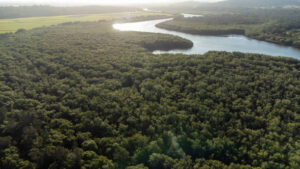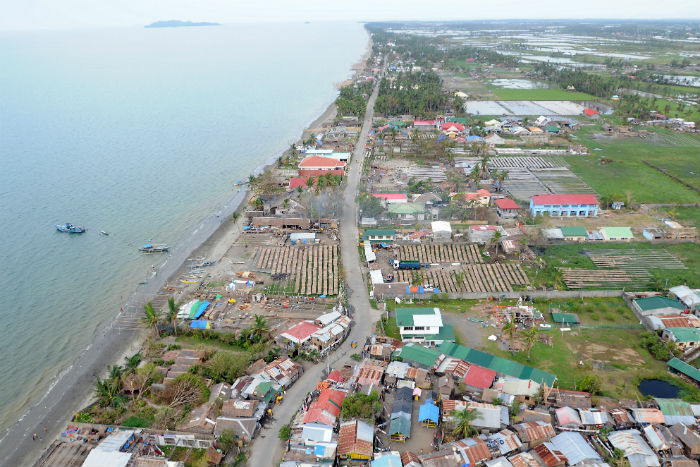
To say that Brazilians are an environmentally conscious people (and soccer afficionados) is an understatement. The country has an established reputation in both fields. Brazil is the most successful international team in World Cup history. Perhaps less excitingly, but more consequentially, Brazil also has a long tradition of progressive environmental policies and climate governance, playing a key role in several international conferences. In the United Nations Stockholm Conference (1972), Brazil highlighted poverty and underdevelopment as environmental issues and led countries in the Global South to resist their Northern counterparts’ untamed post-colonial agenda. Brazil famously hosted the UN Earth Summit in 1992 and Rio+20 in 2012. Brazilian negotiators were the leading co-authors of the Kyoto Protocol’s innovative carbon offsetting regime. Throughout the last four years, this legacy was sorely tested. Under president Bolsonaro’s notoriously anti-environmental policies, Brazil’s environment and climate leadership were significantly undermined. However, on October 30, Luiz Inácio Lula da Silva, globally known as Lula, defeated the incumbent president by 1.7% of the votes, the smallest margin in Brazilian recent constitutional democracy. In his victory speech, Lula immediately vowed to protect the Amazon and to retake Brazil’s leadership in the climate arena.
President-elect Lula’s announcement (and his previous policies) hinted that, under his incoming administration, the climate crisis would be considered with the seriousness, urgency, and cooperation-based approach it requires. International law, which is based on sound scientific evidence, clearly establishes the pressing need for effective mitigation of greenhouse gas (GHG) emissions. After all, to achieve the main goal of the Paris Agreement, namely keeping the rising global average temperature below 2°C (35.6°F) above pre-industrial levels while advancing efforts to cap the temperature increase to 1.5°C above pre-industrial levels (Paris Agreement, art. 2), all parties committed to reducing their GHG emissions. Moreover, parties vowed to reach global peaking of GHG emissions as soon as possible and to continue to mitigate and expedite their reductions thereafter (Paris Agreement, art. 4). Unsurprisingly, the international community welcomed Lula’s victory, with US President Joe Biden and his Chinese counterpart, Xi Jinping, among the first to call congratulating Lula.
President-elect Lula’s commitment to the preservation of the Amazon and the fulfillment of Brazil’s obligations under international law, however, should not be taken for granted. Under President Bolsonaro, Amazon deforestation soared to its highest rate since 2008. His environmental minister (in)famously recommended Bolsonaro take advantage of pandemic-focused news cycles to advance environmental deregulation. A lack of legal enforcement, including the dismissal of environmental fines, the dismantlement of national environmental agencies, and significant budget cuts led to record wildfires, the invasion of indigenous territories, and numerous deaths. It also contributed to lodging, wildcat mining, and export-based industries such as cattle raising and soybean production encroaching on constitutionally protected natural areas. In this governmental vacuum, environmental journalists were brutally murdered; several indigenous peoples were dead or displaced. Others are creatively pursuing their own protection. The Munduruku indigenous women, for instance, started using drone cameras and social media to document legal violations and to galvanize protection of indigenous territories.
Likewise, President Bolsonaro, who was not ashamed of trying to game the system, pursued anti-environmental and climate policies in the international arena. He joined the Trump administration in boycotting further developments of the Paris Agreement’s Rulebook during COP 25, held in Madrid in 2019. That same year, with President Trump still in office, The Economist named the Brazilian president “the most environmentally dangerous head of state in the world.” Recently, a complaint filed with the International Criminal Court accused President Bolsonaro of genocide of Brazilian indigenous peoples due to the country’s mishandling of the pandemic. Furthermore, the Bolsonaro administration bluntly disregarded Brazil’s obligations established in climate agreements. While the country submitted nationally determined contributions (NDCs) in 2020 and 2022, both were in clear violation of Article 4, Paragraph 3 of the Paris Agreement, as they were not more ambitious than the country’s intended NDC. Accordingly, Brazil’s environment and its international reputation were jeopardized.
Nonetheless, even under the Bolsonaro administration, some remnants of Brazil’s long-standing reputation for environmental protection emerged. During last year’s Conference of the Parties (COP 26), Brazil signed the Glasgow Leaders’ Declaration on Forests and Land Use, committing to “working collectively to halt and reserve forest loss and land degradation by 2030 while delivering sustainable development and promoting an inclusive rural transformation.” At this year’s conference, namely, COP 27, Brazil, Indonesia, and the Democratic Republic of Congo signed a rainforest protection pact, vowing to cooperate on sustainable development management and conservation. Nationally, Brazilian courts routinely operated as a fierce check on the Executive’s anti-environmental policies. Climate constitutional protection reached its apex this summer, when Brazil’s highest court, the Supremo Tribunal Federal (STF), became the first court in the world to recognize the Paris Agreement as a human rights treaty, granting it supranational status. The STF also highlighted the prohibition of retrogression on environmental and related climate protections.
Given the striking contrast between President Bolsonaro and President-elect Lula on environmental and climate governance, the latter unsurprisingly received significant media coverage of his COP 27 participation. President Bolsonaro opted for not attending this important summit. Throughout the event, his first trip abroad after the elections, Lula, a seasoned politician, played the field to his advantage. The New York Times called his participation at this COP “exuberant.” He underscored Brazil’s new stance against deforestation and support of Amazon reforestation, while highlighting his commitment to environmental and climate protection and pledging to expand environmentally protected areas and to restore policing capabilities. He also called on developed nations– specifically, the United States and the European Union–to deliver on their Paris Agreement pledge of 100 billion USD annually to assist developing nations with their energy transition.
Such calls for climate financing and deforestation commitments are welcomed, particularly in light of the current levels of GHG saturation in the atmosphere. Recent studies estimate that capping the temperature increase to 1.5°C above pre-industrial levels (as determined in the Paris Agreement) is unlikely, at best, considering current NDCs. A recent report from the Global Carbon Budget estimates that the carbon budget will be exhausted within nine years if current levels of emissions are maintained. The report concluded that “Reaching net zero CO2 emissions by 2050 entails cutting total anthropogenic CO2 emissions by about 0.4 GtC (1.4 GtCO2) each year on average, comparable to the de- crease observed in 2020 during the COVID-19 pandemic.” This, of course, has become even more difficult as countries cope with the ongoing adverse effects of climate change as well as the Russian invasion of Ukraine and its impact on energy markets in particular.
The current scenario adds complexity to the perennially intricate climate governance regime. This puts additional pressure on the preservation of forests, including the Brazilian Amazon, due to their role as carbon sinks. It also provides extra incentives for parties to cooperate amongst themselves (and with private actors), benefiting from the non-market and market mechanisms of Article 6 of the Paris Agreement. Moving forward, it is likely that scrutiny of the Sustainable Development Mechanism (SDM), as established in Article 6, Paragraph 4 of the Paris Agreement and implemented by the Glasgow Climate Pact, will increase. As the SDM replaces the controversial Clean Development Mechanism (CDM) of the Kyoto Protocol, verification, additionality, transparency, and accounting-related requirements of carbon offsetting will become even more significant. It remains to be seen if Brazil, who along with China ranked among the top beneficiaries of the CDM, will be subject to higher scrutiny vis-à-vis carbon offsets under the SDM. Furthermore, the BASIC countries (Brazil, China, India, and South Africa) are expected to continue to negotiate as a block in climate matters and beyond, as seen in the recent G20 summit.
If any certainty can be found, it is that President-elect Lula will face an increasingly complex climate governance arena. To implement Brazil’s commitment to international climate treaties and secure a fair energy transition from fossil fuels, he will need the support of Congress, where he faces strong opposition. Hope may come with the World Cup in Qatar. If the passion for soccer brings Brazilians together, progressive environmental and climate policies will benefit. This outcome would be a win–win for Brazilians and for the world.
Carolina Arlota is an Associate Research Scholar at the Sabin Center for Climate Change Law, Columbia Law School.



